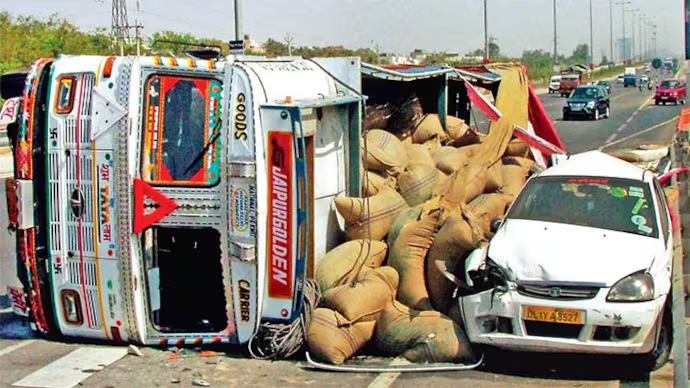Landmark SAFEMA Tribunal Verdict Finds Chanda Kochhar Guilty in ICICI-Videocon Bribery Case
In a breakthrough in one of India’s most high-profile corporate fraud cases, the Appellate Tribunal under the Smugglers and Foreign Exchange Manipulators (Forfeiture of Property) Act (SAFEMA) has found former ICICI Bank CEO and Managing Director, Chanda Kochhar, guilty of accepting a bribe worth ₹64 crore in exchange for sanctioning a ₹300 crore loan to the Videocon Group in 2009.
The tribunal’s order, dated July 3, 2025, marks a crucial turning point in the ICICI-Videocon loan controversy and reaffirms the allegations of financial misconduct and quid pro quo that had long shadowed Kochhar’s tenure as the head of one of India’s largest private banks.
Tribunal Establishes Clear Quid Pro Quo
The SAFEMA appellate body, after extensive deliberations and examination of evidence, ruled that the ₹64 crore was indeed a gratification extended to Chanda Kochhar and her family, routed through Supreme Energy Pvt Ltd into NuPower Renewables Pvt Ltd, a firm owned and controlled by her husband Deepak Kochhar.
In what it called an “undeniable quid pro quo,” the tribunal linked the disbursal of the ₹300 crore loan from ICICI Bank to Videocon International Electronics Ltd. directly with the financial benefit received by Kochhar’s husband. The fund transfer from Supreme Energy to NuPower occurred just one day after the loan was sanctioned, leaving little doubt about the suspicious timing and intent behind the transaction.
Tribunal Overturns Previous PMLA Ruling
Importantly, the SAFEMA tribunal overturned a November 2020 order by the adjudicating authority under the Prevention of Money Laundering Act (PMLA), which had earlier ordered the release of assets worth ₹78 crore belonging to the Kochhars. The tribunal observed that the earlier decision suffered from serious legal lapses and had relied on “irrelevant considerations” while “ignoring material facts” crucial to the case.
This new ruling lends strong support to the Enforcement Directorate’s (ED) findings, reinforcing its argument that the ₹64 crore constitutes proceeds of crime under PMLA. Consequently, the ED’s earlier provisional attachment of the Kochhars’ assets has now gained judicial endorsement, strengthening the case for confiscation and penal action.
Ownership and Control of NuPower Under Scrutiny
One of the critical elements of the tribunal’s decision was its interpretation of ownership and control over NuPower Renewables. Although the company was initially floated in the name of Venugopal Dhoot, the promoter of the Videocon Group, the tribunal accepted Dhoot’s recorded statement to ED officials under PMLA. In this statement, Dhoot asserted that Deepak Kochhar was in full control of NuPower and that Dhoot had merely acted as a front or facilitator.
Timeline of the Scandal
This corporate scandal first began unfolding in 2009, when ICICI Bank, under Chanda Kochhar’s leadership, sanctioned multiple loans to the Videocon Group. These loans collectively totaled around ₹1,875 crore. However, it was not until 2016 that the matter was brought to light by a whistleblower, who alleged a serious conflict of interest and potential financial misconduct in the dealings.
In response, the Central Bureau of Investigation (CBI) initiated a preliminary inquiry in 2018, which ultimately led to the registration of a First Information Report (FIR) in January 2019. The FIR formally named Chanda Kochhar, Deepak Kochhar, and Venugopal Dhoot, and charged them with criminal conspiracy, cheating, and abuse of official position.
Chanda Kochhar stepped down from her role at ICICI Bank in October 2018, as regulatory scrutiny intensified. In a dramatic development in December 2022, the Kochhars, along with Dhoot, were arrested in connection with the case. Although all three were later granted bail, the investigation and prosecution have continued in full force, with the Supreme Court actively monitoring proceedings.
Far-Reaching Implications for Corporate Governance
The SAFEMA tribunal’s verdict sends a strong message across India’s financial and corporate landscape. It not only exposes a severe breach of corporate governance at the highest levels of ICICI Bank during Kochhar’s tenure but also highlights glaring lapses in internal checks, conflict of interest policies, and oversight mechanisms that should have prevented such abuse of power.
Furthermore, the case reaffirms the critical role of regulatory bodies like the ED and SAFEMA in unearthing complex financial crimes and their ability to pursue justice even in the face of powerful corporate interests.
As legal proceedings continue under the watchful eye of the apex court, the tribunal’s latest ruling is expected to shape the next phase of enforcement action and asset recovery. It also sets a strong precedent for holding corporate executives accountable and reinforces the need for transparency and ethical conduct in the banking sector.




